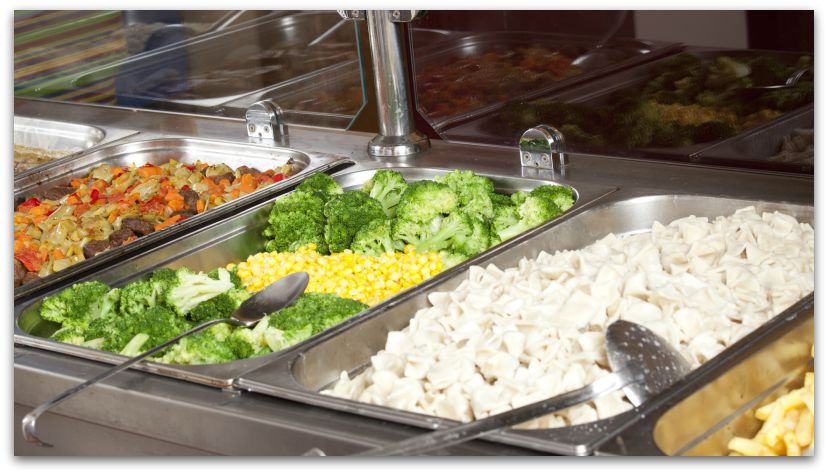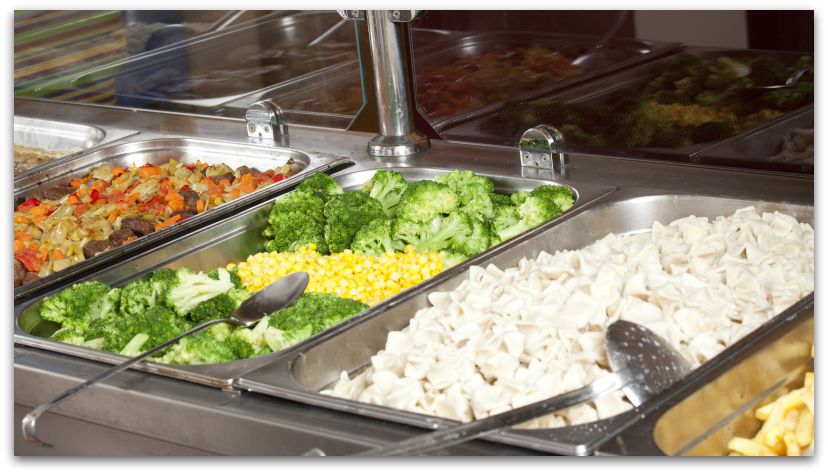Here are some facts about mealtime in the Big House.
- Prisons have by and large sourced out its food service to for-profit companies that also service school cafeterias. They get a lot of food out of a dollar. The average cost per meal, per prisoner: under a dollar.
- Good news: They have brunch in prison. Bad news: It’s a cost-saving measure. Texas, Illinois, Ohio, and Georgia have saved millions by combining breakfast and lunch for inmates on weekends and holidays.
- California prisons still serve three meals a day, and by law, one of them must be served hot. However, some jails are so afraid of breaking this rule that they serve two hot meals daily, should something in the kitchen go wrong on one of the hot meals and it has to be served cold.
- Prison kitchens must follow strict dietary guidelines provided by the government, assuring that inmates receive proper nutrients and enough calories. Balanced nutrition at lower cost is why spaghetti sauce made with hamburger is not widely used in prisons but “Italian sauce” made with soy protein is—it’s lower in fat and costs less than beefy sauce.
- Prisons are required to offer special meals for religious and dietary restricted diets, such as gluten-free, vegetarian, and kosher. The Federal Bureau of Prisons has a 15-item checklist that prison kitchens must follow in order for kosher meals to be “religiously certified.”
- Most common requests for a “last meal” by death row inmates: steak, hamburgers, and French fries. Texas, the state that executes the most prisoners, eliminated last meals for death row inmates in 2011. Prisoners aren’t allowed to pick just anything, however. Many states have a cost limit (in Florida, it’s $40, for example, and $50 in California), and stipulate that the ingredients or meal be available within driving distance of the prison.
- Not counting dietary restricted meals, all inmates are generally served the same meal with the same items each day. But if an inmate misbehaves, they may be given nothing to eat but a concoction called “nutraloaf.” The ingredients vary…because it’s made of leftovers of previous meals mushed together and baked into a loaf.









